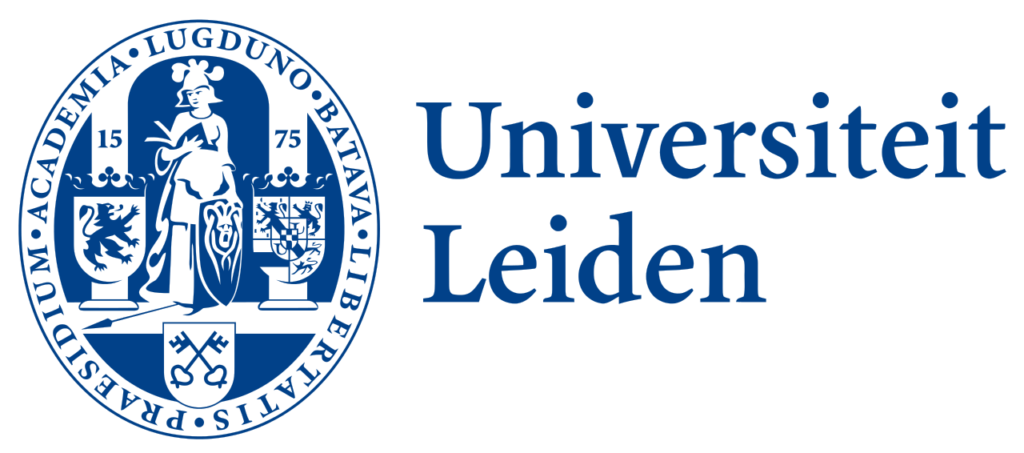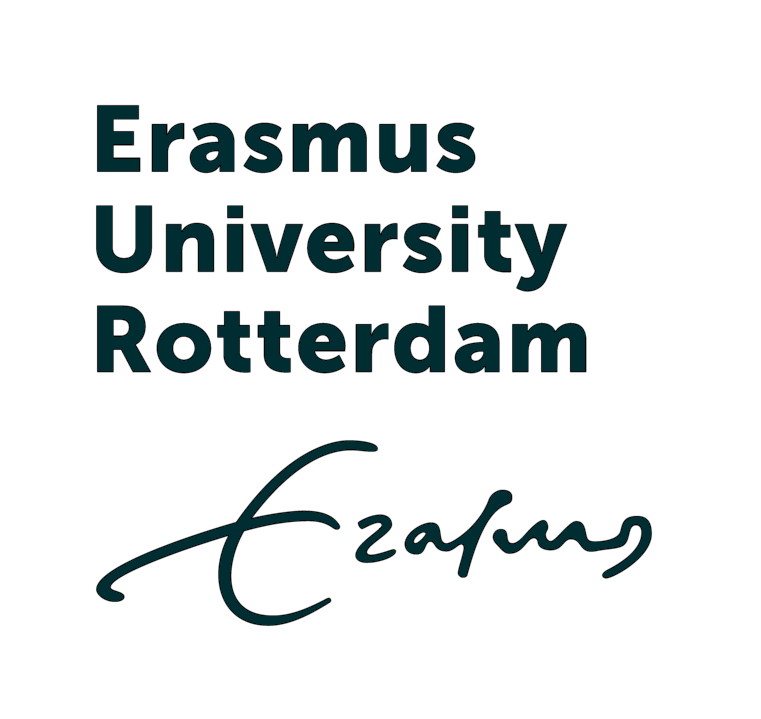Best English-Taught Business Schools in Europe for MBAs
See the best Business universities in Europe for international students, ranking for the most engaging, affordable, and powerful English-taught programs for 2024.

Getting your Master of Business Administration really gives you some shine in the wide world of business, and choosing to pursue an MBA at a university in Europe makes good sense.
Our Rankings list may feel a bit scandalous or novel, given it hasn’t been influenced by external factors like sponsors and other rankings, nor is it based on disingenuous factors like research.
Our rankings reflects many years of on-the-ground research, vetting, and experience by ourselves and our members, and speaks directly to what really matters to US students pursuing English-taught college degrees in continental Europe and Ireland.
#1 Bocconi University
One of the more recognized and prestigious “triple-crown” accredited business schools, in the heart of the cosmopolitan city of Milan, Italy. This school has a range of business programs beyond the MBA, relatively strong student supports, impressive employability stats, a FAFSA #, and a vibrant international community located in a truly ideal location for ease of European travel.


#2 ESSEC Paris
A regularly featured school by Beyond the States, ESSEC is a strong contender in a vast array of notable business schools across France. Ideally located just outside Paris, this “triple crown” accredited university flaunts its flexibility of curriculum for those who prefer to shape their own degree. Gain a double-degree and study abroad at one of their 245 partner schools. Nearly 40% of the student body are foreign students, and they claim that 94% of graduates (within 6/mo of graduation) are employed in their field.
#3 ESCP Business School Berlin
Over 200 years old, ESCP is Europe’s first and oldest business school. A truly flexible and standout international MBA program in that it, unlike most master’s level programs, doesn’t require prospective students to have an aligned undergraduate major to apply. You can study and live in up to 3 European countries during the program; their campuses are located in Berlin, London, Madrid, Turin, and Paris. And students have the choice to study on campus, online or hybrid in 10 to 34 months. Guaranteed to make connections through their alumni network of 45,000 members in 150 countries and from 200 nationalities. This school also has a FAFSA #.


#4 Erasmus University Rotterdam
Located in the bustling port city of Rotterdam, Netherlands, EUR attracts students from around 37 different countries world-wide. This truly global business school has a vibrant student scene, and a modern campus that’s a 15-minute bike ride or 20-minute tram ride from the city center. Beyond the International MBA, EUR has many other master’s level business degrees on offer. There is a strong student support system in place, and many student associations and clubs to take part in.
#5 University of Mannheim
If you’d prefer to gain your MBA in a smaller city, MBS might be a good fit for you. Although Mannheim, Germany’s population is just over 300K, it has a small-town charm. This MBA program allows you to stay your entire year in Mannheim, or study and live for 3-month increments in one of their partner schools in Asia, Europe and/or the US. This is an accelerated program, with small class sizes, offering a vast range of electives, and tying up with a 3-month master’s project at the end.


#6 Copenhagen Business School
Earn your MBA in one of the world’s most livable cities – Copenhagen. A big city with a small town feel, and a cycler’s dream. CBS is another prestigious “triple crown” accredited institution that should be on your business school radar. It has robust student support and mentorship with its career service program; its career partners include Deloitte, Google, Ernst & Young, McKinsey & Company, AIG, Bayer, and Danske Bank. Personalize this degree, and choose from four concentrations: digitalization, entrepreneurship, finance or governance, and sustainability. CBS also has a FAFSA # .
#7 University of Amsterdam
Walk the canals of Amsterdam in-between studying for your UvA MBA. Amsterdam is a truly multicultural , tolerant, and liberal city, and has very high English proficiency. Conveniently part of an international train network, the city makes it simple and quick to travel elsewhere. UvA is another internationally recognized “triple crown” accredited school, and this program offers a full-time (Amsterdam MBA) and part-time option for study. The part-time (Executive) can be followed on-campus and hybrid, and points to this program’s flexibility. It takes a team-oriented approach, and has small and interactive classes. UvA has a thriving student community, and many student associations to fit into. This school also has a FAFSA #.


#8 Berlin School of Economics and Law
One of the more affordable of our featured MBA degrees in Europe can be found in the extravagant yet affordable city of Berlin, Germany. Berlin, unsurprisingly, boasts a dynamic business environment. The city itself has high safety, walkability, and nightlife scores. The BSEL program is multidisciplinary in nature, and allows you to shape your own curriculum with a variety of sub-focuses and a variety of electives.
#9 Trinity College Dublin
Another high-caliber option can be found at the prestigious Trinity College Dublin. Founded in 1592, Trinity is Ireland’s top ranked university, and one of the more established. Trinity’s campus is located in the heart of Dublin, and is home to a real community of scholars. The Trinity MBA has the “triple crown” accreditation, is another one of our more affordable picks, and can be pursued in one-year full time or two-years part time. The program is intensive and project-based and focuses on “live action learning” where you’ll be applying your classroom knowledge in the field to real-world business problems.


#10 Kozminski University
This “triple crown” accredited school in Warsaw, Poland may not be on your radar of MBA programs, but it should be. Warsaw is a cutting-edge urban metro but the city is affordable and walkable. KU is a consistently high-rated business school, and this program (in collaboration with ESCP – look above) boasts an intensive, hands-on, cross-cultural experience. Many resources are on offer here, such as access to 50K job opportunities and 20K internship offers, as well as opportunities to connect with more than 60K active alumni in 150 countries. Take part in their Grow Point program, where mentors support students’ entrepreneurial ideas. An impressive 90% of graduates find work within 90 days of graduation. And opportunities to study in a variety of countries are accessible.
Why Other Ranking Systems Are Broken
While there are many rankings of international universities, college rankings usually refer to those that are most influential like US News, Times Higher Education, and the ShanghaiRanking (ARWU). We spend a good amount of time cautioning against using this factor as a major criterion.
All ranking systems have different strengths, weaknesses, and biases. A school that is on one list may not appear at all on another. Further, not all schools are eligible for the rankings which rely on research and Ph.D. programs heavily. If we ever reference this factor in our materials it’s because we realize it’s such a major part of the American mindset.
While the domestic US News rankings have their issues, their Global Rankings are truly flawed. The most important limitation to note is that, while there are a number of quality indicators US News uses in ranking US schools, their international rankings look exclusively at factors around research (such as global research reputation, number of publications, number of books published, number of citations, percentage of total publications that are among the 10 percent most cited, etc.).
If you need further insight on why the college rankings system is truly flawed or a refresher on the increasing number of college rankings scandals in the US, here’s a gloomy summary.
So what does that really tell you about your educational experience? Nothing. We take a more holistic and practical approach.
The Methodology Behind Our Ranking System
We are sometimes asked if college in Europe is as “good” as in the US. People assume a high degree of educational quality in the states simply because of the standard ratings, which are more-or-less unrelated to the educational experience or outcomes of the students. Honestly, the fact that our college graduates test only as high school grads from the Netherlands and Finland is quite telling…
This is why we’ve created a new kind of Ranking system, authored exclusively by Beyond the States, focusing primarily on school/program factors that really matter to US students choosing a degree in Europe:
- Accessibility and availability of English-taught degrees
- Affordability for international students
- Notable employability record and economic mobility
- Quality of international student life on campus/in the city
- Ample international student supports in place
- Availability of study abroad and internship opportunities
- Strong student reviews
- International exposure
- For MBAs and business programs, internationally recognized accreditations like “triple-crown”, including AACSB, EQUIS and/or AMBA
More on Business School Accreditation in Europe
Indeed, there are some truly prestigious, rigorous, and dynamic MBA programs across Europe – many beyond our published list. Recall, all programs in our database are accredited, and a number of them (including many on our list of top MBA schools) are “triple crown” accredited. Let’s chat about this: business schools can seek these “extra” international accreditations through AACSB, EQUIS, and AMBA. AMBA accredits only the MBA program, while AACSB and EQUIS accredits the entire business school.
These accreditations look at things that really matter about the educational experience. Factors assessed include engagement among students and faculty; mission statement; instruction quality; teaching effectiveness; curriculum development, content, and review; corporate connections; internationalization; personal and professional development opportunities for students; and balance of emphasis on knowledge and skills.
These accreditation stamps are one thing we’re keeping our eyes on when considering our top business school lists, including top MBAs in Europe. Unlike global rankings, which are based entirely on research related criteria, these factors really have an impact on the student’s experience and outcomes. To have any of these accreditations is notable, but to have all three is extremely rare (less than 1% of business schools around the world have it) and is referred to as triple crown accreditation.
All in all, the schools on our Ranked list made it there because they seem to come up again and again for us, either when we’re creating Best Fit Lists or as features for our Programs of the Month, or they generally appeal to a large number of our members and international students. And there’s a reason for this – they uniquely, consistently meet the criteria above we’ve carefully devised after years of experience in the field of English-taught degrees in Europe.
Why Study in Europe
Studying in the US can be a great experience, but it’s not the only option out there. If you’re looking for something different, studying in Europe might be the perfect choice. Beyond the States offers students a unique opportunity to find a degree from a top-ranking European university while still being able to study in English.
If packing up your whole life and moving sounds more exciting than terrifying, then you’ll love what colleges in Europe have to offer you. These are 5 reasons why going to college in Europe will be the best decision you’ll ever make:
1. Tuition is much more affordable than the US.
In continental Europe, the average cost of all the English-taught bachelor’s programs is just $7,390 per year. Since 1985, US college costs have surged by about 1000 percent, and tuition and fees continue to rise. Even when you factor in the cost of travel, going to college in Europe if often cheaper than one year of tuition at a state college in the US.
2. There are thousands of English-taught degrees.
Choice is another key issue. When cost is a chief consideration, you may be limited to only in-state schools, where tuition is lower. What if your in-state schools aren’t a good option for your chosen field of study? In Europe there are thousands of programs to choose from across 212 areas of study, and they are all taught 100% in English, so there’s no need to worry about learning a new language.
3. International exposure is essential and highly valued.
Students who studied abroad stand out from the crowd when seeking jobs after college. The very act of leaving their comfort zone to make a fresh start in a new place builds skills and confidence that will be carried throughout a student’s life. Silicon Valley billionaire investor, Chris Sacca, describes international study experience as a critical differentiating characteristic among candidates. According to former General Electric CEO Jack Welch, “The Jack Welch of the future cannot be like me. I spent my entire career in the United States. The next head of [General Electric] will be somebody who spent time in Bombay, in Hong Kong, in Buenos Aires.”
4. You’ll avoid the US admissions rat race.
The college admissions process in the US has become a race to the bottom as students compete with their peers for a single spot in a liberal arts college, convinced by parents and guidance counselors that their survival rests on playing a musical instrument or varsity sport.Many smart kids don’t do well on standardized tests. This doesn’t limit them as much when looking outside of the US, as many colleges in Europe do not require standardized tests. Many countries see entry into universities as a right, rather than a privilege, so admission standards are not as stringent.
5. Spend your weekends & breaks exploring the world.
Travel opportunities abound when attending college in Europe. For example, Lille, a city in northern France with multiple universities, is close to major cities such as Brussels, London, and Paris via high-speed rail. Air travel, especially with the rise of affordable airlines like Ryanair, EasyJet, and Transavia, can be comparable in price to rail travel, so many more destinations open up for short-term travel.
How to Get Into the World’s Top Universities
When you also factor in the many problems with US higher education, it is imprudent not to consider other possibilities. It is true there are many excellent schools in the United States—I don’t think anyone would argue that. There are some that have managed to look at applicants as people, and not just a checklist of achievements. Some even have reasonable tuition rates, and/or professors that actively teach and have highly engaged students. Despite this, I have yet to find a school in the United States that addresses all of these issues: allows students to opt out of the rat race the admissions process has become, have reasonable tuition, AND have positive results around the educational experience and post-graduation outcomes. Not every school in Europe provides all this either, but the schools listed in our database do.
How to Find Degrees in Europe That Are Taught in English
Finding these programs is burdensome, difficult, and confusing, especially with institutional websites in foreign languages… We know that making the decision to study abroad can be difficult, so we want to make it easy for you. We scoured the continent for vetted programs and made them available to thousands of families looking to leave the US and find a better life in Europe. We found over 11,200 degrees, 870 universities, 550 cities, and 32 European countries to choose from. Europe offers an impressive range of educational opportunities!
We have gathered all of the information you need to know about studying in Europe – from the different types of schools available to how to get housing and everything in between. Our database helps you find these programs quickly and easily, helping you contextualize the many benefits and options around higher education in Europe.
You will be able to find programs and courses that suit your interests and needs, taught in English by experienced professors in state-of-the-art facilities. Get access to our database and search English-taught European bachelor’s and master’s programs to get started on your journey to Europe today.













